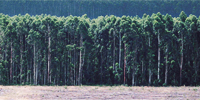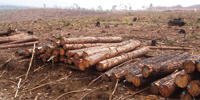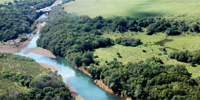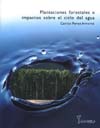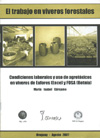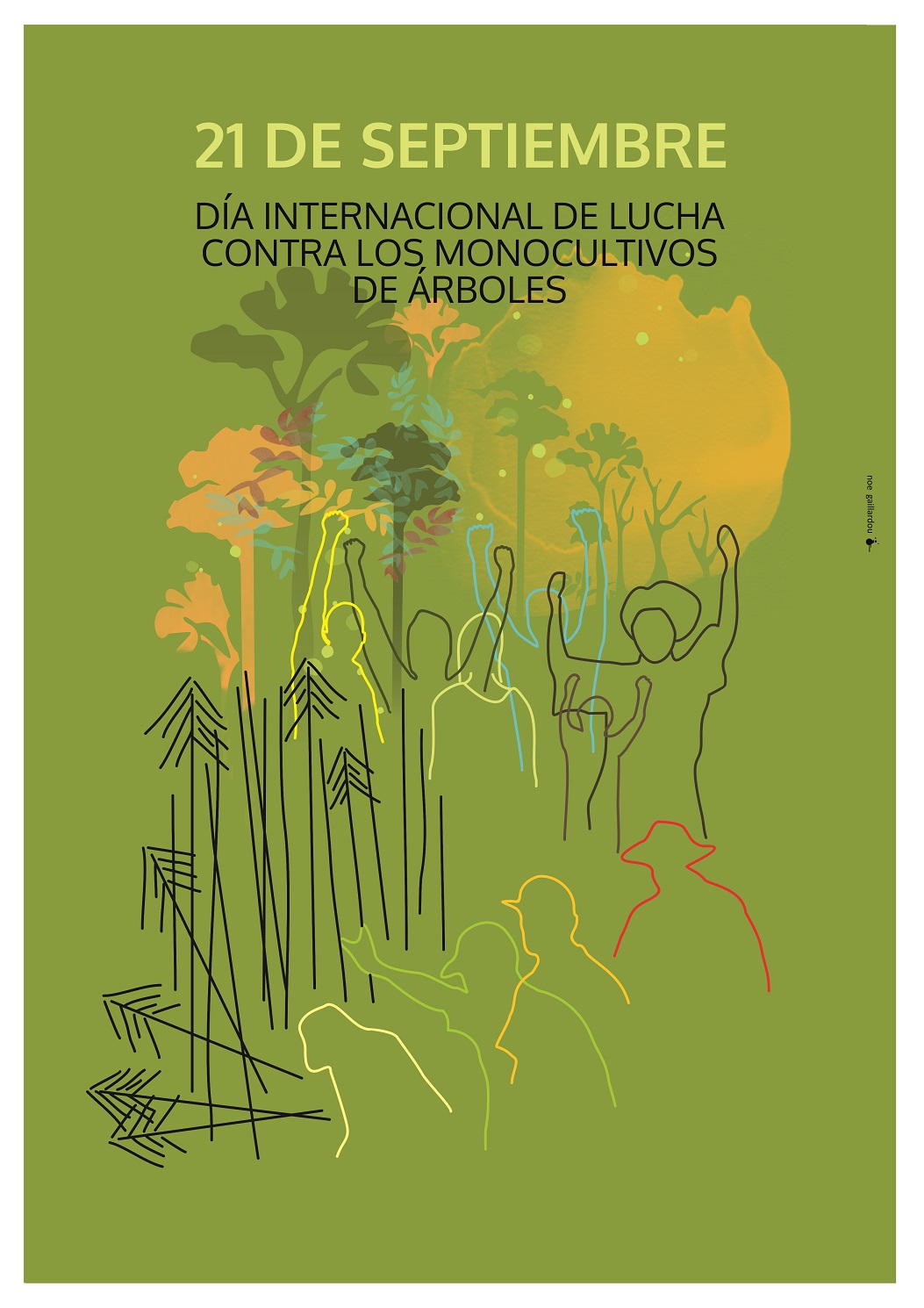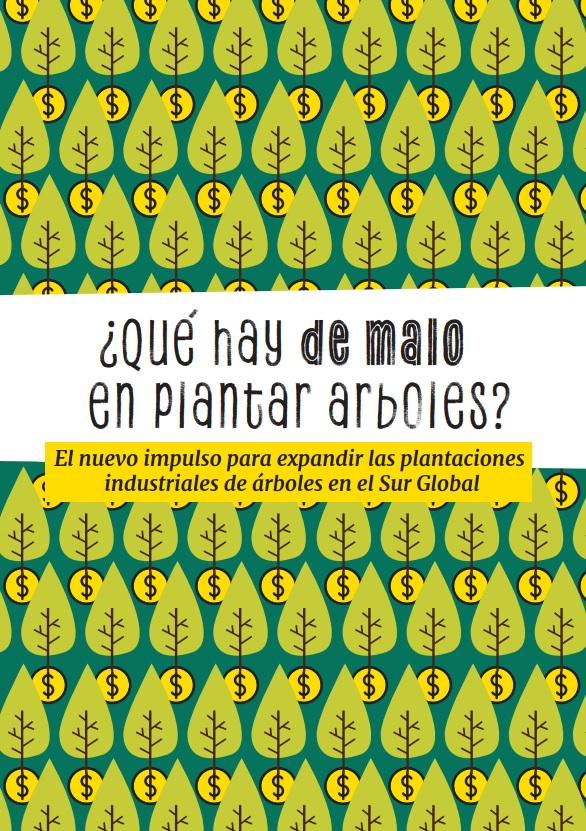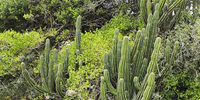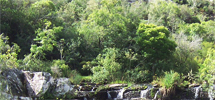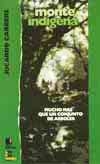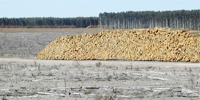Press Release – September 1, 2006
Organizations from eight different countries are requesting the Forest Stewardship Council –a labelling scheme that certifies good forest management practices- to withdraw the FSC certificate awarded to a number of companies in Brazil, Colombia, Chile, Ecuador, Ireland, South Africa, Spain and Uruguay. The challenged certifications in all cases involve large-scale tree plantations which the organizations point out violate the FSC’s mandate of promoting “environmentally appropriate, socially beneficial, and economically viable management of the world’s forests.”
“None of the South African plantations should have been certified by the FSC, firstly because plantations are not forests and secondly because of the serious negative social and environmental impacts they produce,” says Wally Menne, a member of the Timberwatch Coalition. Philip Owen, from GeaSphere adds that “In South Africa, Industrial Timber Plantations impact most severely on the grassland biome, which is the most threatened vegetation type locally. Surely –he adds- the FSC should not be sanctioning this destruction of the natural environment.”
In the case of Ecuador Nathalia Bonilla –in charge of the certification issue at the local NGO Acción Ecológica- is demanding the de-certification of some 20,000 hectares of pine and eucalyptus plantations established in the Andes by the Dutch FACE Foundation, as well as over 8,000 hectares belonging to Ecuadorian company ENDESA/BOTROSA, which has a long history of social and environmental crimes. “We have documented in detail the negative impacts of these plantations on the livelihoods of the affected indigenous communities and on their environment; now the obvious step is for the FSC to withdraw the certificate to these plantations.”
Marcelo Calazans, a member of the Brazilian Alert Against the Green Desert Movement, which campaigns against tree monocultures described as “green deserts”, states that “although we oppose the certification of all large-scale tree monocultures, we are demanding the de-certification of only three companies: Suzano-Bahia Sul,Vallourec & Mannesmann and Plantar. The reason for this is that the social and environmental impacts of these three companies are so well documented that it is obvious that the FSC must immediately withdraw its certificate.”
The transnational Smurfit Kappa has a long history of conflicts with local communities in the Colombian region where it operates. “We cannot understand how this company can sell its products under the FSC logo”, says Diego Alejandro Cardona from CENSAT-Friends of the Earth Colombia. “The company’s operations are probably economically viable”, states Cardona, “but it no way can they be described as being environmentally appropriate or socially beneficial. We therefore demand the FSC to cease providing it credibility through the use of its label.”
In the case of Spain, local organizations have been demanding for over a year the cancellation of the FSC certification to plantations company NORFOR. Antón Masa, from the Association for the Defence of the Ria of Pontevedra explains that the reason for the urgent cancellation of the NORFOR certification “lies in the serious deficiencies found in the certification report and the clear inadequacy of NORFOR’s management system with respect to FSC principles and criteria.”
Several organizations in Ireland are demanding the withdrawal of the FSC certificate awarded to Coillte’s 438,000 hectares of plantations. Ciaran Hughes, from the Woodland League says: “NGOs in Ireland that have campaigned for the decertification of Coillte have been dealt a serious blow with Coillte’s recertification earlier this year. Coillte practices have always fallen far too short of the FSC principles and criteria.”
“In Chile there are serious cases of companies that should have never received the FSC logo and that deserve to be de-certified. Such are the cases of Forestal Monte Aguila, belonging to CMPC (Mininco) and Forestal Bio Bio (Forestal Arauco), that are severely questioned and whose certification does not take into account their environmental impacts and the territorial conflicts with indigenous Mapuche communities”, states Alfredo Seguel, from the Agrupación Konapewman and member of the working groups of the Coordination of Mapuche Territorial Identities (CITEM).
As respects to Uruguay, local organizations are demanding the de-certification of two national (COFUSA and FYMNSA) and two foreign (Finnish COFOSA and Spanish EUFORES) plantation companies. Ricardo Carrere, the author of the report “Greenwash: Critical analysis of FSC certification of industrial tree monocultures in Uruguay”, stresses that “none of those plantations should have been certified” and that “by certifying large-scale tree monocultures such as these, the FSC is weakening local struggles against them.”
The organizations involved in this activity have sent letters to the FSC Board and to the members of the Plantations Review Working Group demanding the withdrawal of the FSC certificate to all the above mentioned companies, on the basis that none of them comply with the FSC mandate.
Uruguay: Letter for the de-certification of EUFORES, COFOSA, COFUSA and FYMNSA
We the undersigned wish to register our concern over the certification of tree plantations in our country by the FSC, which has granted a green label to monoculture plantations that have proven to be socially and environmentally destructive.
We are aware that the FSC is carrying out a review of its plantation certification policy, and it is our hope that the result of this process will be an end to the certification of these types of plantations by the FSC in the future.
Nevertheless, the fact remains that the FSC has already certified large areas of monoculture tree plantations in our country, and we believe that their certification should be re-assessed as part of the current review process in order to determine whether they deserve to keep the FSC label.
There are well-documented cases of plantations in our country that never should have received this label and clearly merit de-certification.
As proof that the current review process is genuinely aimed at a profound change in plantation policy, we are calling for the immediate de-certification of the plantations that most blatantly violate the FSC’s mission and the re-evaluation of all other certified plantations in the country.
We therefore demand the immediate de-certification of the plantations owned by EUFORES, COFOSA, COFUSA and FYMNSA, whose impacts have been largely documented (1).
Sincerely,
– Grupo Guayubira
– Red Uruguaya de ONGs Ambientalistas
– Redes Amigos de la Tierra Uruguay
– Programa Uruguay Sustentable
– Red de Acción en Plaguicidas y sus Alternativas – Uruguay
– Eco Tacuarembó
– Regional Latinoamericana de la Unión Internacional de Trabajadores de la Alimentación
– Asamblea del Callejón de la Universidad “Chico Mendes”
– Movimiento de chacreros de Mercedes
– Coordinadora de Mercedes contra los monocultivos forestales y fábricas de celulosa
– Movimiento por la Vida, el Trabajo y el Desarrrollo Sustentable
– Comisión Nacional en Defensa del Agua y de la Vida
– Intersocial Salinas
– Comisión Multisectorial
– Obras de Desarrollo y Acción Social
– Centro de Estudios Uruguayo sobre Tecnologías Apropiadas
– Centro Interdisciplinario de Estudios sobre el Desarrollo, Uruguay
– Colectivo Bioptimistas
– Fundación 3 Soles
– Primer Centro de la Ecología
– Comunidad Charrúa Basquabé Inchalá
– Comisión Barrial Zona Oeste
– Centro Social “El Galpón de Corrales”
– Centro Uruguay Independiente
– Asociación Soriano por la Defensa de los Recursos Naturales
– Centro Latinoamericano de Ecología Social
– Defensa del Medio Ambiente Valdense
(1) Carrere, R (2006).- Maquillaje verde. Análisis crítico de la certificación de monocultivos de árboles en Uruguay por el FSC. Montevideo, WRM

